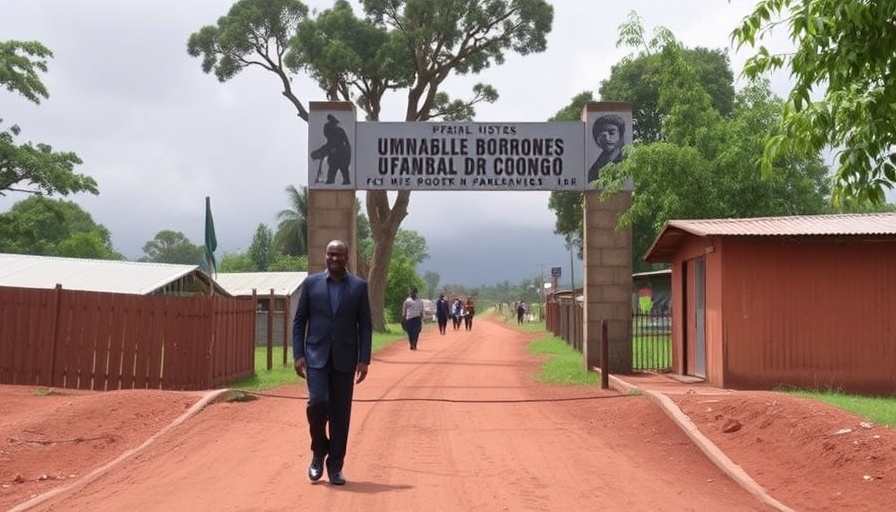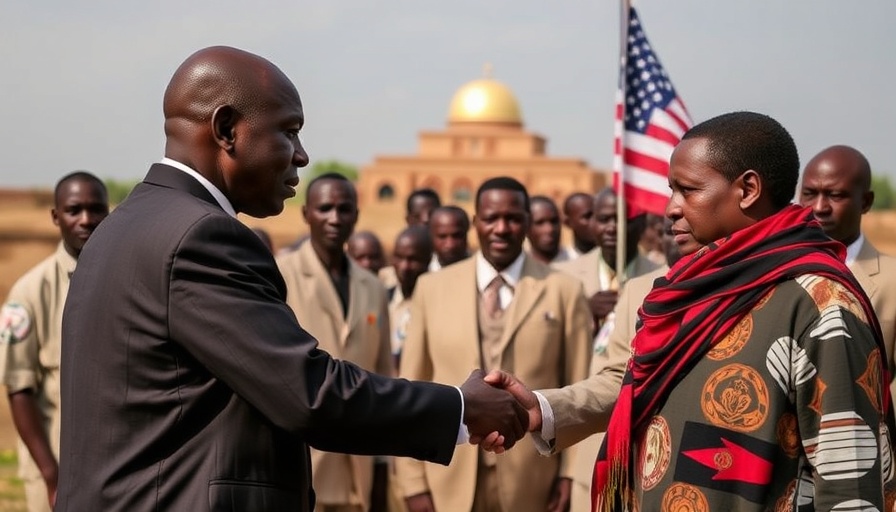
Uganda Reopens Its Borders: What It Means for Regional Trade
The recent reopening of border posts between Uganda and eastern Democratic Republic of Congo (DRC) marks a significant step towards revitalizing commerce and diplomatic relations in the region. This development is not only critical for enhancing bilateral trade but also serves as a crucial element in the broader context of African economic integration and geopolitics.
Historical Context: A Long-awaited Resumption
The closure of these border posts was initially aimed at controlling the spread of COVID-19 and other security concerns. However, the consequences on trade were severe, leading to increased informal crossings and economic strain on local traders. Reviving formal trade routes is vital for reinvigorating local economies, particularly in border towns that rely heavily on cross-border commerce.
The Implications for Local Economies
In southeastern Uganda, where the borders intersect with the DRC, the reopening could offer a substantial boost to local economies intricately tied to cross-border trade. Small businesses stand to benefit, and this could catalyze growth within the more extensive Ugandan and Congolese financial markets. As connections are restored, the potential for increased foreign investment becomes evident.
Geopolitical Considerations: Uganda's Strategic Position
In the larger geopolitical sphere, Uganda’s initiative reflects a growing trend among African nations to strengthen economic ties both internally and externally. With ongoing discussions surrounding Africa’s role in global trade dynamics, increased connectivity with DRC could enhance Uganda's market viability, drawing international stakeholders' attention.
Global Trade and Africa: A Rising Pivotal Force
The economic interdependence between Uganda and the DRC demonstrates Africa's potential as a global trade connector. As various nation-states look towards Africa for growth opportunities, the reopening of borders could serve as a crucial case study on the prospects of African regional cooperation. With the African Continental Free Trade Agreement striving towards economic integration, this reopening could be a pivotal moment in achieving these goals.
Conclusion: Moving Forward
The reopening of Uganda's border with the DRC presents both challenges and opportunities that are reflective of larger trends within African economic policies and regional governance. For business leaders, policymakers, and researchers, staying informed about these developments is essential for understanding the dynamics of trade and cooperation in Africa’s evolving landscape. This shift not only signals a return to normalcy but emphasizes the importance of strategic diplomatic relations for sustainable economic growth.
As we observe these developments, it becomes crucial to engage with the concept of Africa's expanding role on the global stage and to analyze how these changes will influence the interplay between local economies and international markets.
 Add Row
Add Row  Add
Add 


 Add Row
Add Row  Add
Add 

Write A Comment